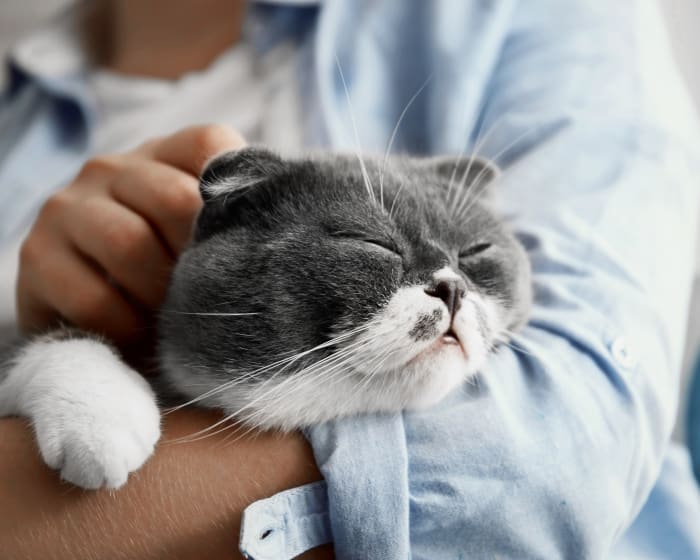What is orthopedic surgery?
Orthopedics Veterinary surgery for pets consists of surgical procedures that address the joints, skeletal system, and their associated soft tissues, including muscles, cartilage, tendons, and ligaments.
Our advanced imaging and diagnostic tools help us provide accurate and effective orthopedic diagnoses.

Common Orthopedic Conditions
There is a wide range of orthopedic conditions that affect cats and dogs. The following are among the most common in orthopedics veterinary:
Cruciate Ligament Tears
Torn cruciate ligaments in dogs, just like in people, must be surgically repaired to prevent arthritis. There are many different types of surgical procedures that can be used to repair this injury, and the type used typically depends on the size of the dog.
One of the surgeries your vet might recommend is TPLO or Tibial Plateau Leveling Osteotomy surgery to treat the injury.
TPLO surgery eliminates the need for the cranial cruciate ligament by reconfiguring the knee, rather than supplementing the ligament with the use of a suture through an extracapsular repair.
Disc Disease
Just like humans, dogs can develop disc problems in their neck and backs. Breeds that commonly suffer from neck disc problems are Cocker Spaniels, Poodles, Dachshunds and Lhasa Apsos. Large breed dogs are more likely to have chronic lower back issues.
Dogs with advanced disc disease should have surgery as soon as possible. The sooner that surgery is done, the better the prognosis.
Luxating Patellas
The patella (knee cap) lies in a cartilaginous groove at the end of the femur at the stifle. A luxating patella occurs when the knee cap moves out of its natural position. Knee cap problems are common in many dog breeds, both large and small.
Surgery is recommended for animals that have significant lameness as a result of luxating patellas, with the goal of keeping the patella in its appropriate location at all times.
Hip Dysplasia
Hip dysplasia is the medical term for a hip socket that doesn't fully cover the ball portion of the upper thighbone, allowing the hip joint to become partially or completely dislocated. It is most common in German Shepherds, Golden Retrievers and other large breed dogs.
Total hip replacement is the most effective surgical treatment for hip dysplasia. The surgeon replaces the entire joint with metal and plastic implants, returning hip function to a more normal range.

Orthopedic Surgery FAQs
- What happens during the surgical consultation?
During the surgical consultation, we will perform a physical exam and review your pet’s medical history. Blood work, and any other diagnostic tests that are needed to determine the nature of your pet's condition will also be undertaken at this time.
Diagnostics may include x-rays, a CT scan, an ultrasound, or biopsies. Once the results are back, a plan for surgery is developed and discussed with you.
- Will the surgery and consultation happen on the same day?
No. The consultation appointment is required for testing and examination, to determine the nature of your pet's health problem. Once any diagnostic test results have come back from our lab, a surgery appointment can be scheduled.
- How long will the surgery take?
Orthopedic surgeries typically last between two and four hours, depending on the type of surgery being performed and on your pet’s specific condition.
- Does my pet have to stay at the hospital overnight either before or after the surgery?
Depending on the time of day that the surgery is scheduled, it may be necessary to drop your pet off the night before.
Many of our patients need to stay with us overnight after surgery so that we can monitor them as they recover. Depending on the type of surgery that is performed and how quickly they recover after anesthesia and surgery, your pet may be able to go home on the same day.
